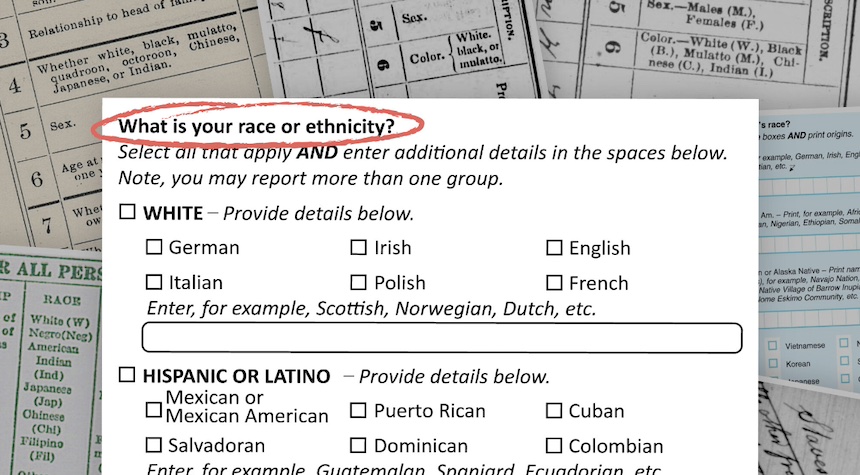The United States has discovered a new way to divide us. The federal government has changed the way we are classified by race and ethnicity after years of discussion, debate, and public comments.
Why?
An ethnically Egyptian American lawyer said, “As a community, we can’t ensure that everyone has equal rights and protections if we don’t know who is affected by systemic biases and overt or covert discrimination.”
The government is going to classify us in two different ways. First, race and ethnicity will be combined. Hispanic Americans are unable to identify themselves on the census because there is no option for race.
Meeta Anand is the senior director of census and data equity for the Leadership Conference on Civil and Human Rights. She said that many Latinos don’t see themselves as belonging to any race category under the current standards. A large percentage (nearly 44%), selects ‘Some Other Race,’ or ignores the race question altogether.

Who knew “data” is inequitable?
Second, the government will add “Middle East or North Africa” (MENA), to forms. Arab Americans are thrilled.
“The new Standards will impact communities for many generations, especially Arab Americans whose erasure from federal data collection is finally over,” Maya Berry said in a press release.
“Erasure”? How can they be “erased”, when they weren’t even there?
Sheesh.
Washington Post:
These changes will be reflected on various federal data collection forms including the Census surveys, which the government sends every 10 years. The changes will also be reflected in the American Community Survey which is more frequent and contains more questions.

These data guide federal officials in everything from analyzing healthcare outcomes to redrawing congressional districts.
The new standards are effective immediately. However, agencies have up to 18 months to develop plans for compliance and 5 years to implement them.
You need to divide up a budget of $7 trillion by including as many “erased” races, ethnicities, and sexual preferences as possible. If not, Washington’s bureaucrats would lose half their jobs.
They mean well, I am sure. We’re already divided as a nation. Why not find ways to bring us together instead of finding more ways to divide?

Karin Orvis is the chief statistician for the United States. She wrote in a blog on Thursday that the revision would “enhance [our] ability to compare data and information across federal agencies and also understand how well federal programs serve a diverse America.”
These changes will be reflected on various federal data collection forms including the Census surveys, which the government sends every 10 years. The changes will also be reflected in the American Community Survey which is more frequent and contains more questions.
35 federal agencies will use the new data points to update their forms.
Was the change necessary? What’s not to love if you are a government manager, and the mountains of data you have at your disposal help you in your job of distributing government goodies?


